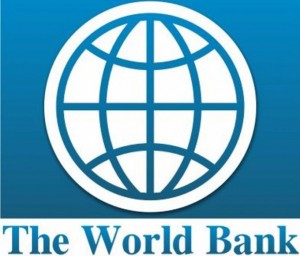Political will needed to transform state enterprises – World Bank
 The Programme Manager for Corporate Governance of the World Bank Group (WBG), Sunita Kikeri, says reforms to transform State Owned Enterprises (SOEs) would not be effective without the political will to implement recommendations.
The Programme Manager for Corporate Governance of the World Bank Group (WBG), Sunita Kikeri, says reforms to transform State Owned Enterprises (SOEs) would not be effective without the political will to implement recommendations.
Speaking at a day’s stakeholder consultation workshop on a WBG report on enhancing corporate governance in Ghana, she stated that although the reforms cannot be implemented overnight, they require the political will to move step-by-step in the right direction.
She added that while it was important to address corporate governance issues in the sector, it has to be accompanied by other interventions including external incentives like competition and financial discipline, as well as sector reforms.
Presenting the findings and recommendations of the report, Ms Kikeri noted that unlike the private sector, where there was a clear legal framework such as defined corporate governance, single goal of value maximization, market discipline, monitoring and disclosure mechanisms; state enterprises faced several challenges including the lack of a clear legal framework that defines how state ownership should be implemented including multiple and conflicting objectives.
Other challenges such as multiple agencies overseeing it, budgetary constraints, and little disclosure of financial information, as well as the fact that most SOEs are in critical sectors like energy and water, had led to increased pressure on governments including Ghana to improve corporate governance.
She noted that improved corporate governance was necessary in order to improve productivity and delivery of key services like access to financing, transparency and accountability in the use of public resources and reducing fiscal burden and risks.
Ms. Kikeri commended approval by Parliament of a new companies’ code, but said it did not set out rules and regulations for the running of SOEs, thus the need for a legal framework to address this.
The report called for the development of a sound legal framework for SOEs that will among others set out a clear ownership structure and procedures for appointments to SOEs.
It also called for the establishment of a single entity to exercise the ownership rights of state enterprises, as it is currently complicated; with the Ministry of Finance, line ministries, State enterprises commission and other institutions, including the president, who appoints the Boards and Managing Directors. This, she said, could create conflicts of interest and other issues.
She said a centralised model with a single entity will address the challenges associated with the decentralised model, adding that the approval by cabinet of a single entity to carry out the ownership functions of SOEs was a step in the right direction.
The report also recommended the creation of a proper board nomination framework that would stipulate merit-based criteria for the appointment of board members, as there were currently no clear guidelines for this, leading to a lack of independence and financial expertise by board members.
It also called for capacity building for SOEs for transitioning to the International Financial Reporting Standards (IFRS) and clear disclosure regulations instituted.
Mr. Cassiel Ato Forson, Deputy Minister of Finance, stressed the need to change the status quo of underperformance as far as state enterprises were concerned and said government and the ministry of finance were committed to the implementation of the single entity.
He reiterated that government had the will and would do everything in its power to ensure that the reforms were implemented by initiatives like recapitalizing some SOEs that needed it, especially in the energy sector.
Mr. Henry. G.R Kerali, Country Director of the World Bank, said improvements in the legal and regulatory environment, strengthening the role of state ownership, increased professionalism in oversight boards and management structures, as well as ensuring disclosure, accountability and transparency would help to improve the performance of SOEs currently under-performing.
Dr William Muhairwe, Team Leader of 2ML Consulting Limited and who headed the water company of Uganda, advocated the effective use of performance contracts with clearly spelt out incentives and penalties as a means of encouraging and ensuring productivity in SOEs.
Drawing on examples in Uganda and Sierra Leone, and using the Ghana Water Company Limited, where a similar project had been undertaken, he said monetary as well as emotional incentives and penalties including name and shame would help to enhance productivity and sustain performance of state enterprises.
Source: GNA
